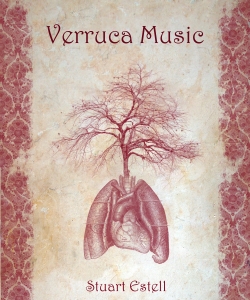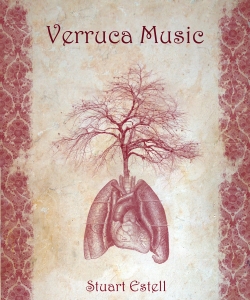I’ve been planning this post for months, and to be honest I’ve been dragging my heals. There’s an apposite reason – I’m bipolar my own mental health hasn’t been tip top the past few weeks. There are good reasons, as in yippee good –
I’ve just finished touring a fabulous words and music show with a host of other great writers that’s played to a set of sell-out crowds.
And there’s the real reason – I don’t really know what to say. Well, that’s not true. I would like to go off on a rant about the ridiculous perception that having mental health issues is glamorous. Or that bipolar people are predisposed to be creative. But I’d just get too angry, and I’ve done it before. Many times.
So I’m not going to hobbyhorse you. Well, I am but not in a down your throat and make you gag kind of way. Hardest and most counterintuitive, I’m not going to talk about me, me, ME. I’m going to talk briefly about three remarkable artists and how mental health relates to their art. Then when I’ve got that out of the way I’ll talk about me! No, really, I won’t.
Cody James, author of
The Dead Beat and Babylon, is the best novelist of her generation. She also has schizophrenia. She is also and has been also many many things – meth addict, Satanist, punk, opening act for Marilyn Manson, consumer of ludicrous quantities of noodles, zinester, photographer, my best friend. And just about the funniest person I’ve ever met. She’s taught me two things about mental health and writing. Well, the first is more about writing in general. Back at the start of last year, she made a brilliant video advertising our first big live show, at Rough Trade Records. In it, she read a passage from Babylon in which the central character, Daniel, tries to kill himself, something Cody has done 4 times. The video was deleted from Facebook after being reported and a massive debate followed. Cody’s contribution crystallised everything I feel about writing. She explained how an English teacher told her once she should try and make the world a better place. Her take – “maybe there is no way to leave the world a better place, and all we can do is tell the truth.” Simple, and all-encompassing. The truth doesn’t mean facts or autobiography. Telling the truth in your writing means peeling your skin off and poking down through the layers to reach the innermost part of yourself, then smearing it all over the page.

Which leads to the second thing – life, the truth, everything to do with this glorious and messed-up world, is complex (and mental health is only one very small part of it). It has more than one side. There is always hope in despair and despair in hope, humour in depravity and depravity in humour.
In a wonderful interview she did for me Cody said:
“What upsets me more than anything in novels and movies in this genre (Selby Jr. I’m looking at you) is that they seem hell bent on portraying only the moments of shock and depravity – they rob the reader and the viewer of the full experience. Yes, we were really fucked up and yes, we did bad things, but we were still trying. I still spent some Sunday mornings eating cereal and watching cartoons with a 7ft tranny. And, even though you’re all jacked up and your apartment has no furniture, you still try. Even though the person cooking the turkey has been up for three days and can’t remember how to work a stove, and your guests keep going to the bathroom to shoot up and then keep falling asleep in the mashed potatoes, you’re still there celebrating Thanksgiving. There are still moments of utter joy and there is still so much laughter. If, as an artist, you don’t portray that, you’re nothing but a cheap hack.”
I can’t really add to that.
 Katelan Foisy
Katelan Foisy is the author of
Blood and Pudding. It’s the book that has influenced my writing and performing more than any other. It tells the story of her bipolar, heroin-addicted best friend Holly. Specifically it is a transcript of tapes Katelan made when one Xanax-fuelled teenage day the pair of them decided to get in a car and see where they ended up (another lesson from Katelan – record everything. You never know when you’ll want it). The transcriptions, full of idealism and energy, form the book’s bones, which Katelan has fleshed out with stories from the years between that trip and Holly’s death from an overdose just a few years later. I have never read such an uplifting celebration of a life. Or of Life. Holly’s was a life cut short, a life shadowed and tarred and tarnished, but it was a Life. Damn, it was a life. Blood and Pudding opens with the wonderful words “Wherever we end up, we end up,” and urges the reader to “go out and live. And live. And go on living, because you never know when it’ll stop.” There are two things to say about that. Mental illness is not a death sentence. Don’t treat it as such. In yourself, or in others. And make sure your writing contributes to Living. Because anything else is as good as being dead.

Dave Griffiths is the former frontman of the band
Witches. He’s the writer and musician behind the fabulous
Grey Children project. He’s using the project, which combines his considerable musical talents with his equally considerable literary ones, to
raise awareness for Pure-O, the form of OCD he has. In
a recent interview I did with him one of the things we discussed most was the role music plays in managing his symptoms. Music provides a total immersion that draws his mind away from everything else. I realised how similar what he was saying was to the role writing plays in my life (and listening to music), to the experience of so many people I know with various mental health problems. Sadly, sometimes the things we use to engulf our minds, to drown out the noises in our heads, are things that do us as much harm as the illness itself, if not more – drink, self-harm, drugs. But art is something that can improve both our mental health and our wider lives. Maybe even the lives of others.
There we have it. Three amazing writers. Three amazing people. Three ways mental health and writing intersect. And a single strand running through the whole thing. Life. And the importance of living it. Without apology and without restriction.





